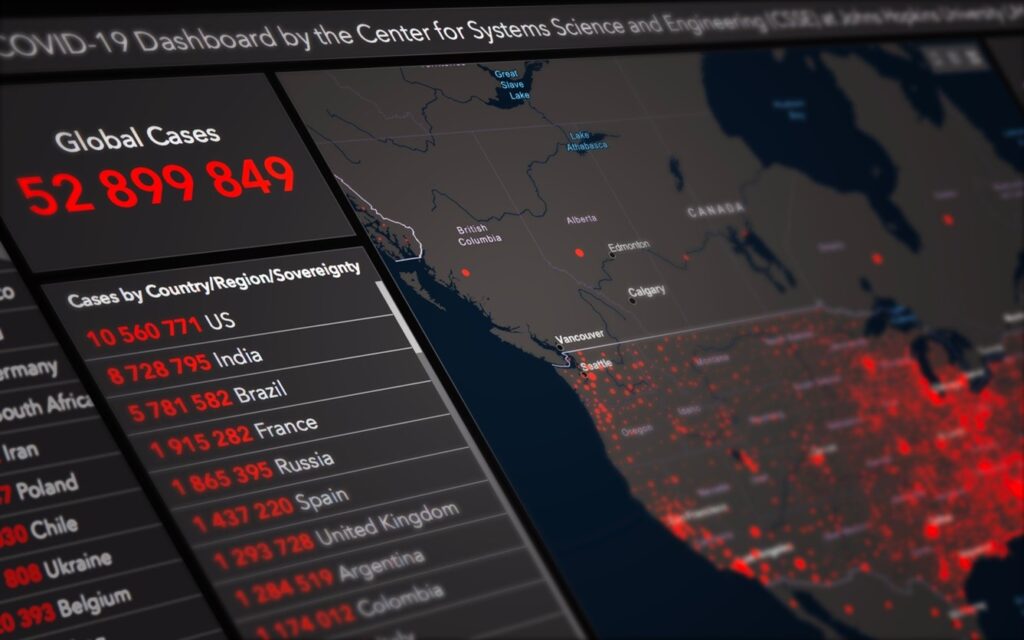In an era marked by unprecedented technological advancements, healthcare stands out as a sector that has undergone remarkable transformation. The fusion of big data with healthcare practices, catalyzed by industry leaders like Viaante, has sparked a revolution, fundamentally altering how medical experts diagnose, treat, and administer patient care.
Viaante, renowned as an outsourcing partner for leading healthcare companies, brings extensive experience in handling data management services and administrative processes to the forefront of this transformative journey. The integration of big data, a hallmark of Viaante’s expertise, has unveiled opportunities that were once deemed beyond reach, revolutionizing the healthcare landscape. In this blog, we shall plunge into the myriad benefits bestowed by the incorporation of big data in the realm of healthcare.
1. Elevated Diagnostics and Tailored Medical Approaches
Harnessing big data analytics equips medical professionals with the means to arrive at more precise diagnoses through the scrutiny of a patient’s medical history, genetic composition, lifestyle preferences, and even real-time monitoring feedback. This holistic approach lays the foundation for personalized treatment strategies tailored to an individual’s distinct requirements, thereby elevating the potential for successful medical outcomes.
2. Prognostic Insights and Timely Ailment Detection
Among the numerous compelling advantages of incorporating big data into healthcare is its capacity to foresee health trends and spot latent risks. By dissecting patterns and interconnections within expansive datasets, medical experts can anticipate outbreaks, track epidemics, and forecast disease progressions. These insights pave the way for proactive interventions and optimal resource allocation, redefining the dynamics of healthcare management.
3. Streamlined Drug Development and Accelerated Research
The expedition of drug discovery has long been hampered by its arduousness and exorbitant costs. Big data analytics surge ahead to expedite this process by meticulously sorting through vast troves of information to spot potential drug candidates, forecast their effectiveness, and even simulate their interactions within the human anatomy. This not only economizes time but also dramatically reduces the financial toll attributed to unsuccessful trials.
4. Optimized Operations and Prudent Resource Deployment
Medical establishments and hospitals can fine-tune their operations by harnessing the power of big data to refine workflows, optimize resource allocation, and curtail waiting durations. Predictive analytics can be instrumental in managing patient admissions, staff timetables, and inventory levels, ensuring optimal utilization of available resources.
5. Continuous Patient Monitoring in Real Time
The assimilation of wearable technology enables incessant monitoring of patients beyond the confines of healthcare facilities. This real-time data can be relayed to medical professionals, affording them the capacity to vigilantly track patient well-being and intervene without delay if circumstances warrant. This proves especially advantageous for individuals grappling with chronic conditions or recuperating post-surgery.
6. Proactive Health Maintenance and Behavior Alteration
Leveraging big data analysis aids in identifying patterns within patient behavior that could contribute to health complications. By identifying these trends, healthcare providers can extend personalized guidance and interventions to cultivate healthier habits. This paradigm shift towards preventive care not only amplifies patient outcomes but also alleviates the collective pressure on the healthcare system.
7. Holistic Population Health Management
For public health authorities, big data emerges as an indispensable asset for charting the course of disease outbreaks, orchestrating population health initiatives, and orchestrating resource allocation during crises. By dissecting data from diverse sources, including social media and wearable devices, governing bodies are empowered to make well-informed choices aimed at safeguarding and promoting public health.
8. Informed Decision Making Driven by Data
Medical experts can make astute decisions underpinned by data-driven insights. From devising treatment protocols to managing hospital operations, decisions informed by data are statistically more likely to yield positive outcomes, ushering in an era of enhanced care quality.
The infusion of big data into healthcare constitutes a monumental game-changer, endowing medical practitioners with the tools to furnish accurate diagnoses, customized treatments, and proactive interventions. The dividends of big data transcend individual patient care, enveloping domains such as drug innovation, operational finesse, and the management of public health. As technology marches forward, the healthcare sector is poised to extract the full spectrum of benefits from big data, ushering in superior outcomes, enriched patient experiences, and a globally thriving populace.
Outsourcing data management services to Viaante offers specialized expertise, increased efficiency, scalability, cost savings, regulatory compliance, and the ability to focus on core competencies. With our advanced technology solutions and dedicated resources, Viaante can help clients operations, enhance accuracy, and deliver timely while maintaining data security and privacy.
Email marketing@viaante.com to Get a Free Consultation or a Free Quote.







